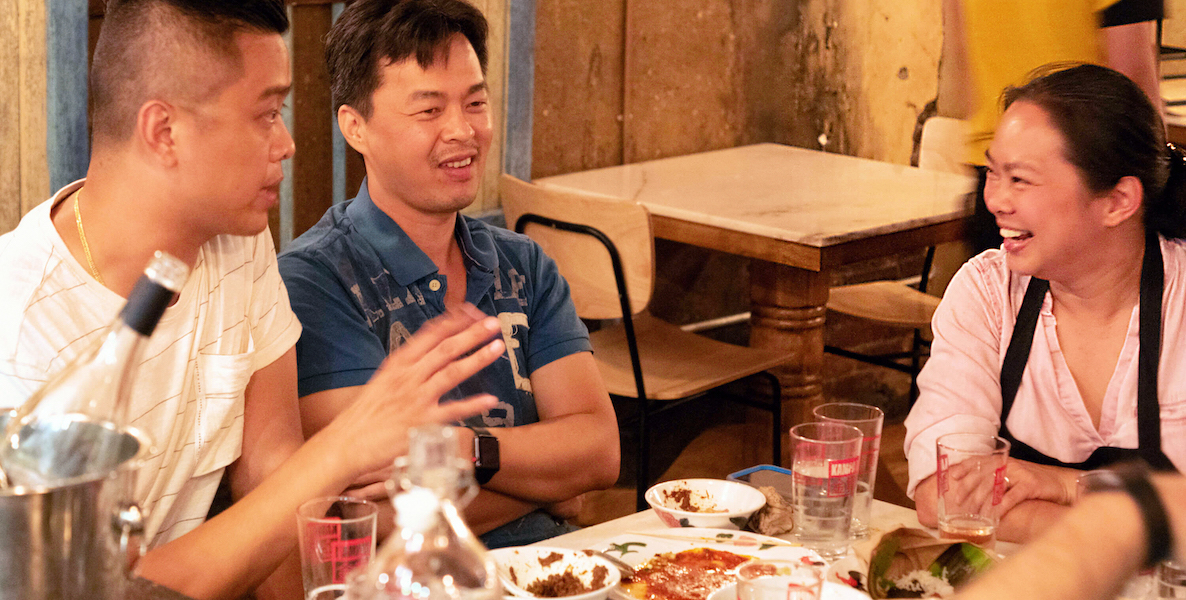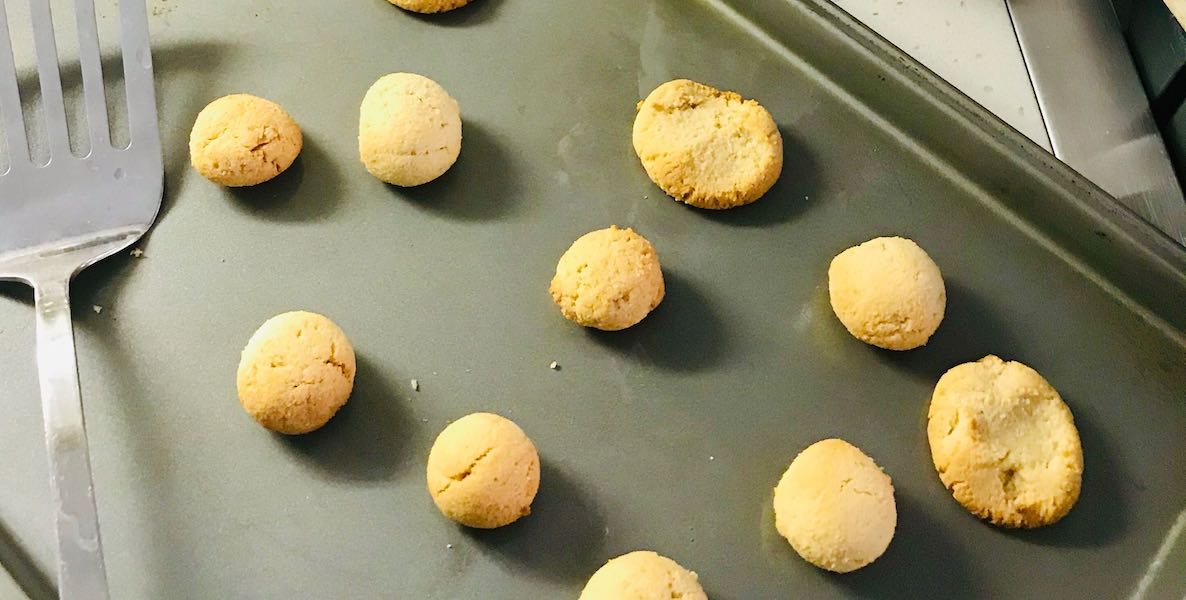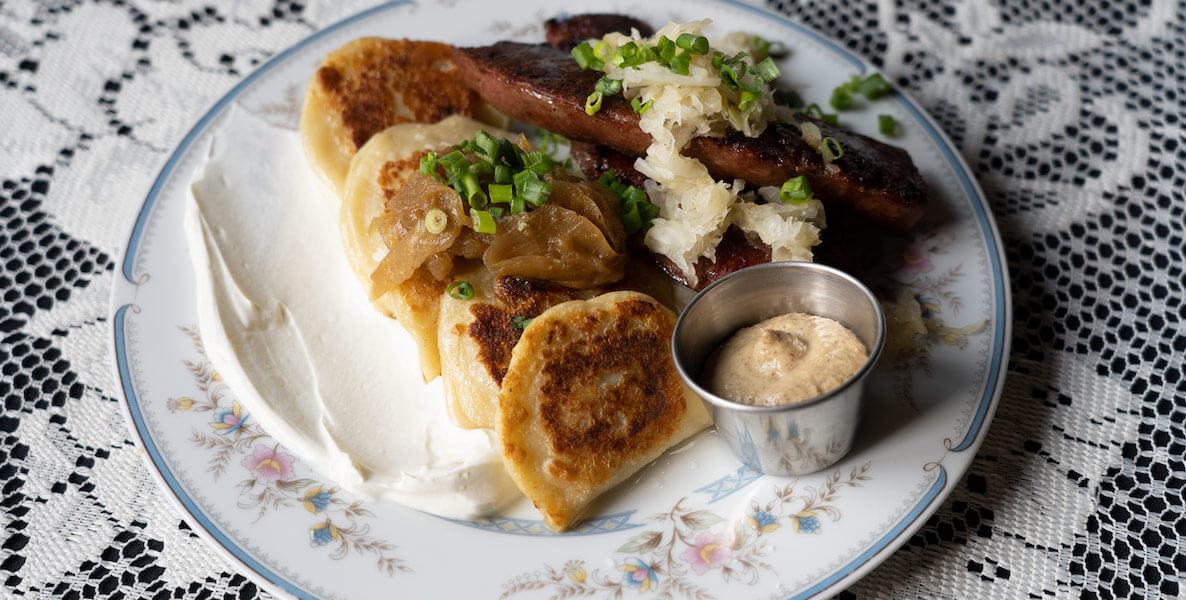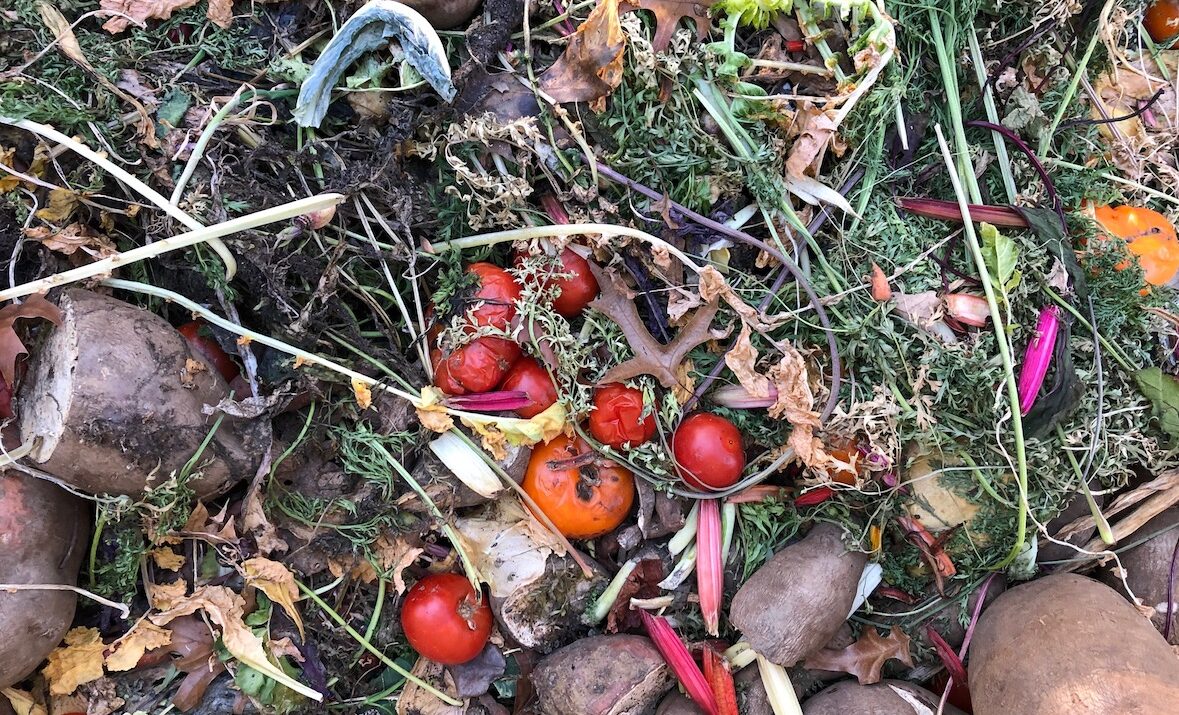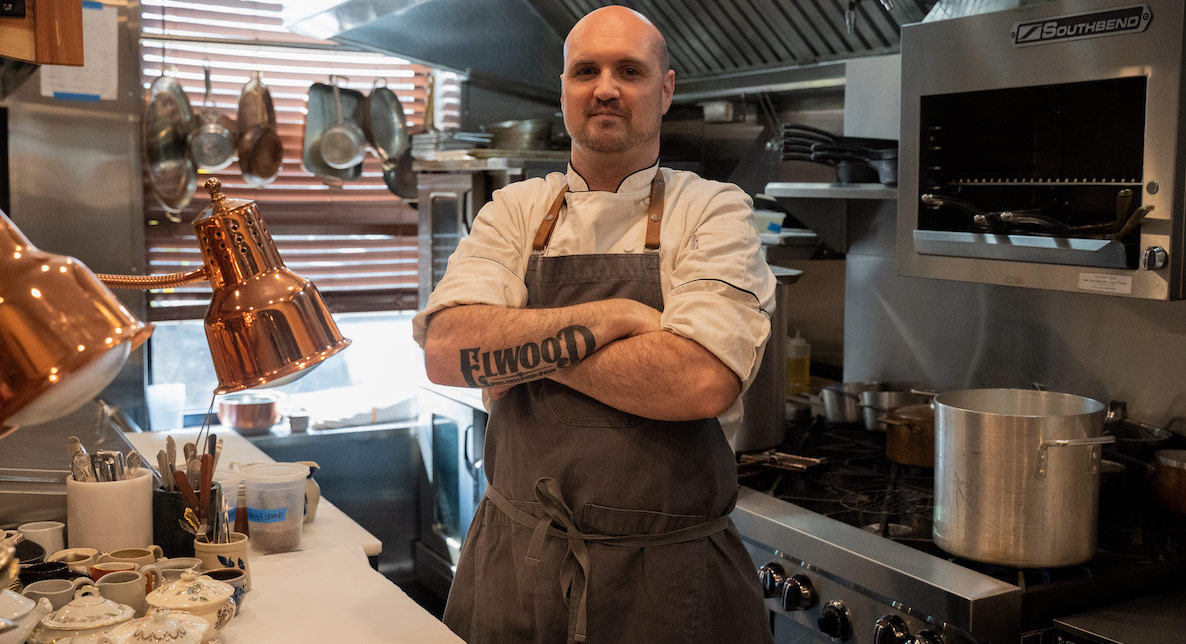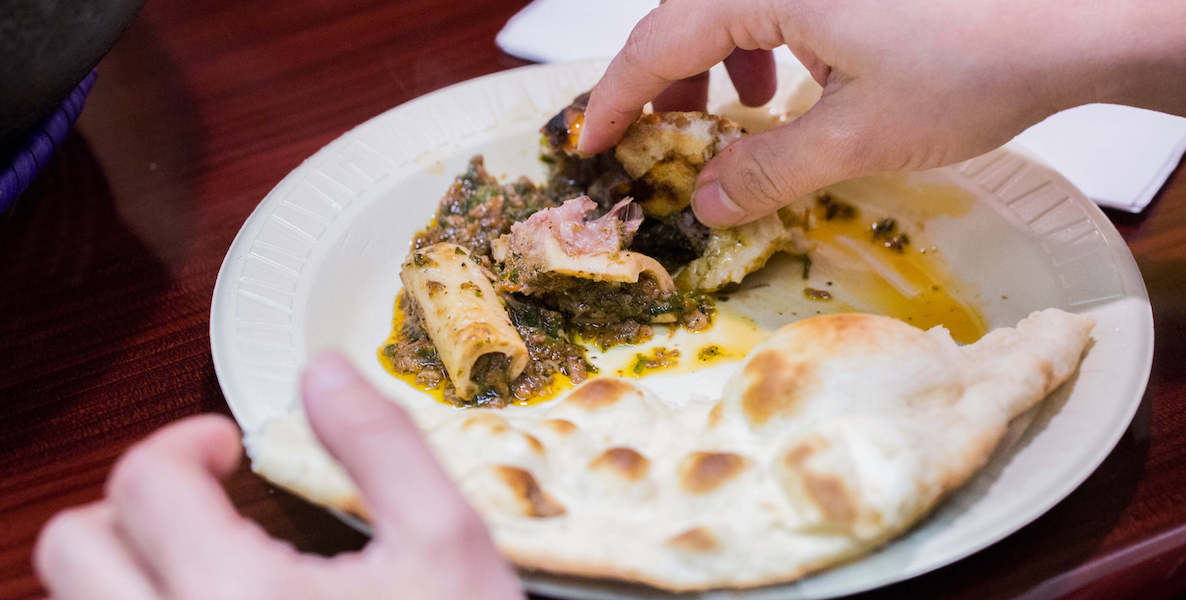When Ange Branca, the chef and co-owner, with her husband John Branca, of Saté Kampar, sit down with Asad Ghumman, 48, owner of Kabobeesh at 42nd and Chestnut streets in early March, COVID-19, is on everyone’s mind. Panic has not yet erupted but business in Chinatown restaurants is slow, media outlets are advising people to avoid unnecessary travel and to work from home if possible, and doctors are preaching avoiding touching one’s face.
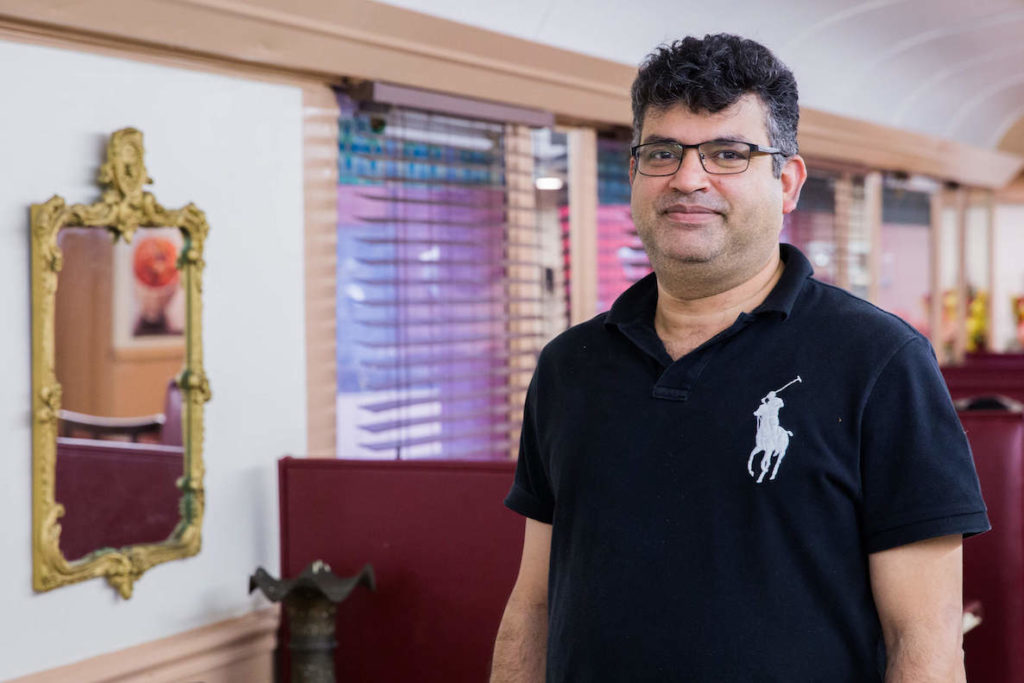
Social distancing is new to the vocabulary for many of us. It reminds Ange of another terrible time, fall 2001, after the jarring horror of the World Trade Center attack, when she first started visiting Kabobeesh as a new Philadelphian.
“When I came here there wasn’t a lot of ethnic food—flavors that take me home. I originally thought it was an Indian restaurant—the names of the dishes are the same. But when I tasted it, I knew it was different. I didn’t know who owned it, but I knew it had amazing halal [prepared according to Islamic law] food. That was obvious to me. And I came back whenever I was in town.”
Now, nearly two decades, and countless kabobs later, the Brancas still spend more than an occasional day off at Kabobeesh, a 17-year-old University City institution known for affordable and flavorful Pakistani food, all day and late nights until 1am.
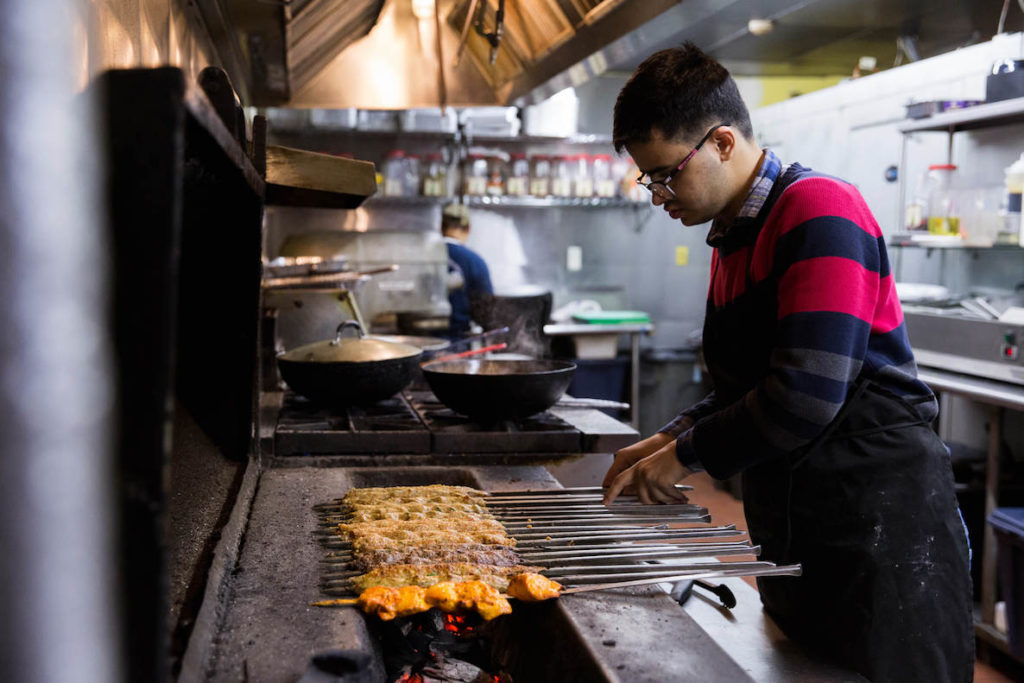
“A lot of what I admire about a place like this is its surviving through points of turmoil,” Ange Branca says. She asks Ghumman how he was treated after September 11, 2001, when they first met. “Muslims were afraid, I remember?”
Expecting another sigh of disappointment, our table is relieved, and surprised, when he says, “People were very nice. They kept coming. They were concerned for me—am I safe? How am I doing?”
Such is the special formula of Kabobeesh—a not very attractive fluorescent-lit interior, with oily food served on finest Styrofoam with plastic cutlery at Formica tables, and aromatic, supple, mutton karahi with warm naan that, at least for a little while, makes you not think about anything else in the world except for, How good is this? Oh my God, so good.
Eat from the restaurants mentioned in this articleDo Something
Ghumman came to Philadelphia in 1995 from Lahore, which he describes as the “food capital of Pakistan. We ate out every day.” He ran a travel agency in the neighborhood from 1996 to 2000, end times for the retail travel agent with the ubiquity of home computing and online travel agencies.
“There was nowhere in Philly to eat my food. I used to drive with a friend to Coney Island Avenue in Brooklyn just to have dinner,” he says.
In 2000, Ghumman took over a relative’s ailing restaurant, Sultan Kabob, on 42nd and Walnut streets before moving into the old All American Diner one block north and rebranding as Kabobeesh, after a famous Lahori restaurant of the same name.
The karahi is not a check-your-phone, swirl-your-wine, how-was-your-day type of dish. It is a mindful, focused, full body eating experience.
Ghumman says that in the restaurant’s early days, “Everything was difficult. We were the first Pakistani restaurant in this area. Any other halal restaurant was Middle Eastern. Our health inspector didn’t even know what our tandoor oven is. ‘What the hell is this?’ he said. We couldn’t find employees. I brought in a chef from the Pakistani part of Kashmir, famous for chefs. We couldn’t get meat—we had to go to the one halal slaughterhouse in Trenton.”
“Now there is an entire halal section at Jetro [restaurant supply store],” Branca notes.
Experienced restaurateurs, Ghumman and Branca agree that things have gotten easier, not just in the supply chain. “I have seven employees from four countries: Mexico, Columbia, Sri Lanka, and India,” Ghumman says. “They’ve been with me a long time.” Asked how he is fully staffed when restaurateurs complain they are hurting for cooks, Ghumman is matter-of-fact, shrugging, “You have to teach them.”
He is equally practical about appealing to diverse constituencies of guests. On a typical visit I see everyone from large Pakistani families sharing karahi, to nostalgic Penn alums having the same resham kebabs they ordered on a date years ago, to cab drivers making quick work of a kabob roll before getting back on the road.
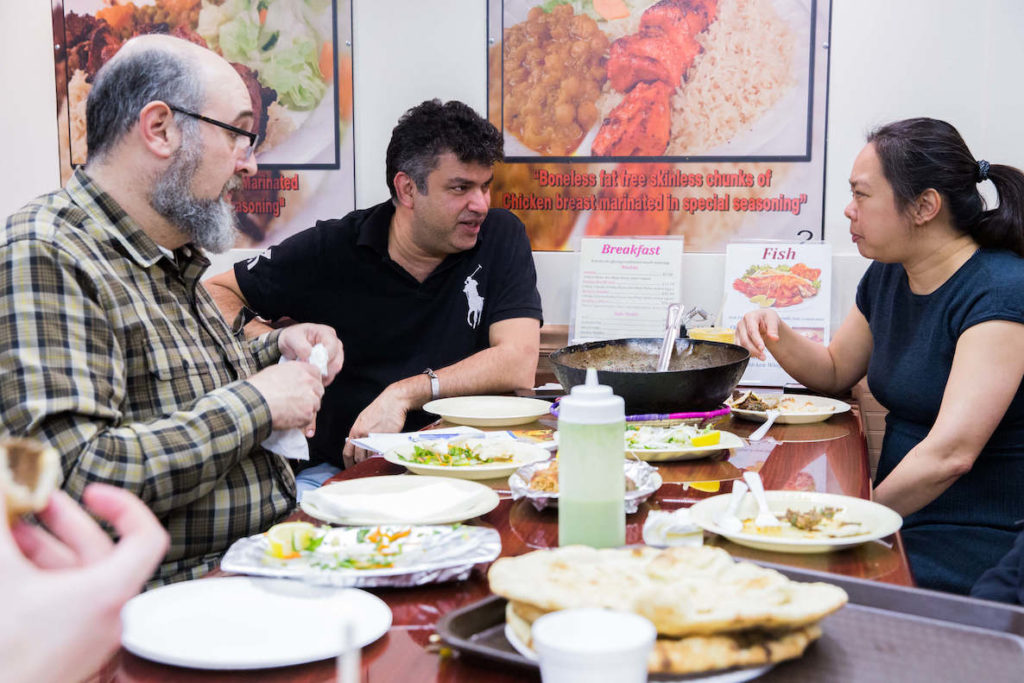
“Americans love to try different food: Japanese, Indian and Pakistani,” Ghumman says. “I get people from the Middle East, India, Pakistan, Bangladesh. People come from as far as New Jersey, New York or Baltimore for my karahi. They say it’s the closest thing to a Pakistani karahi that they can get here.”
The karahi itself is a rich stew of chicken or mutton, cooked down with tomatoes, ginger, garlic, jalapeño and cilantro, and topped with additional fresh ginger and cilantro. It is eaten with a sparse salad and freshly baked naan alongside a thin yogurt-based mint chutney.
The chicken karahi takes 25 minutes to prepare, while the mutton takes 50. The mutton in particular is worth the wait. In either case, the meat falls off the bone into the oily, spiced sauce. One dining companion observed that the karahi is the ultimate communal dish: Not only does it generously serve two to three people as a half-order, or four to five as a full order, its greasiness, succulence, and bone-in preparation necessitate complete concentration. It is not a check-your-phone, swirl-your-wine, how-was-your-day type of dish. It is a mindful, focused, full body eating experience.
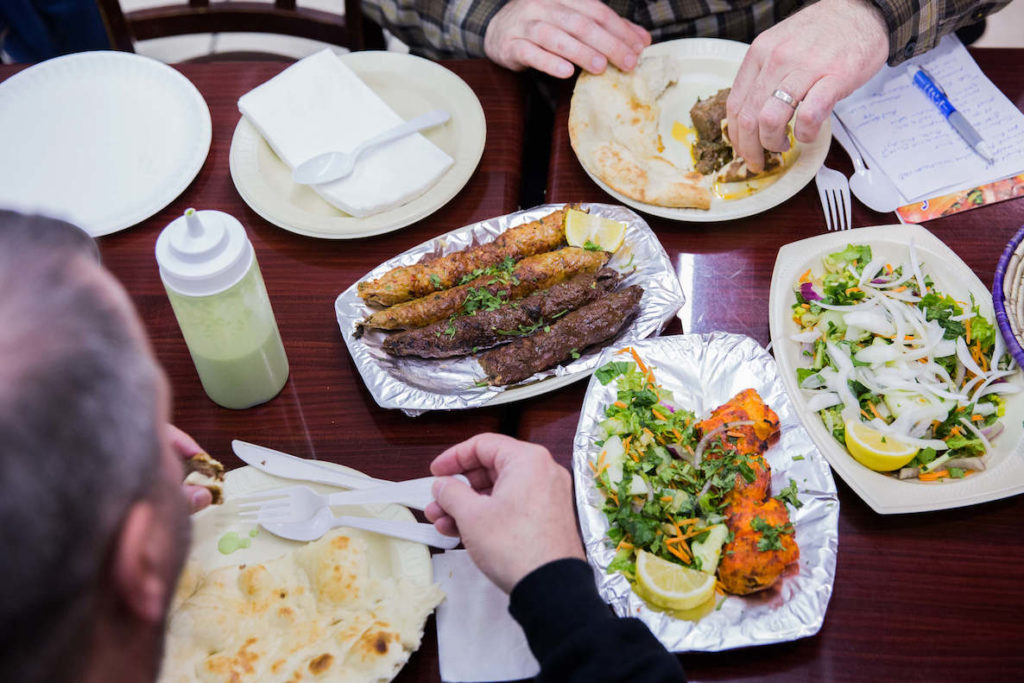
The menu is large—appetizers, kebabs, sandwich rolls, and large-format chef’s specials in addition to a Kabobeesh twist on more traditional University City fare from the attached Penn’s Corner pizza restaurant next door (the Shish Kebab Overload pizza is a fun fusion).
But when you order at the counter, if you look confused, Umair or another helpful staffer will guide you. “It takes 50 minutes so get the large size and take the rest home,” (he was right). “You’ll need more naan,” (right again). “A vegetable?” (Eye roll—but the okra was almost as good as the karahi).
What to eat at KabobeeshKey takeaways
For many of us, 9/11 changed the frame of how we saw things—our country, our heritage, our neighbors. COVID-19 is doing the same thing. Friends become potential vectors; a friendly hug defies social distancing; the snap of latex gloves becomes reassuring. The aroma of karahi rises above the fracas of our anxieties. Take out a half order or have one delivered. When we emerge from this horrible chapter with the summer weather, do it again, a full order, outside, with friends.
Next: Asad Ghumman takes us out.
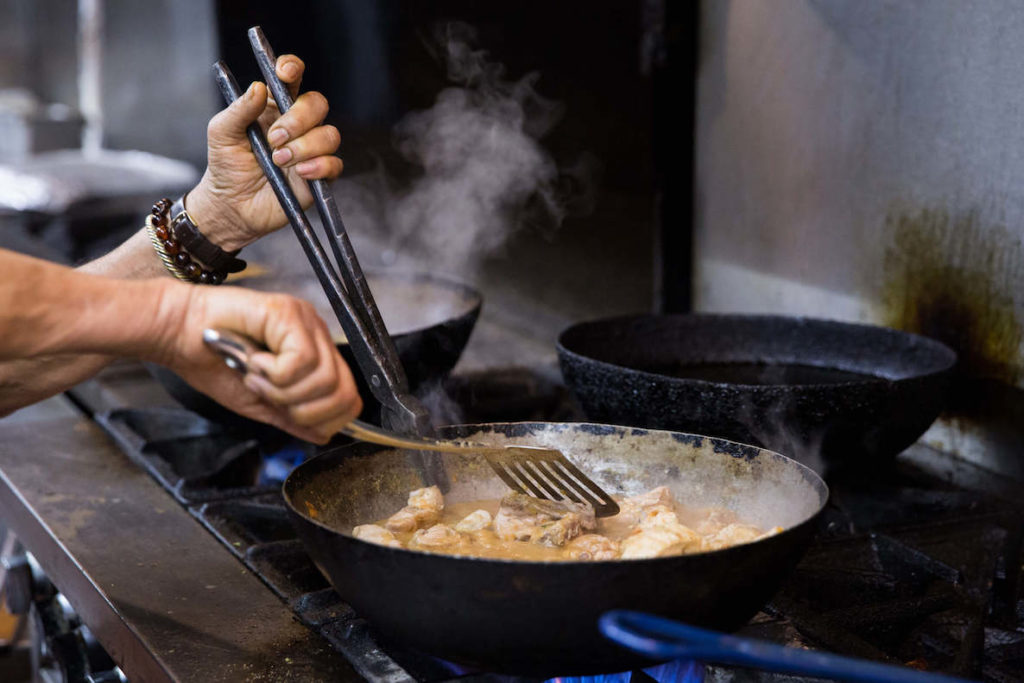
Jonathan Deutsch is a professor of Food and Hospitality Management at Drexel University. This story is part of a serialized book running in The Citizen throughout the year.
Header: mutton karahi with lamb. Photos by Rachel Wisniewski


